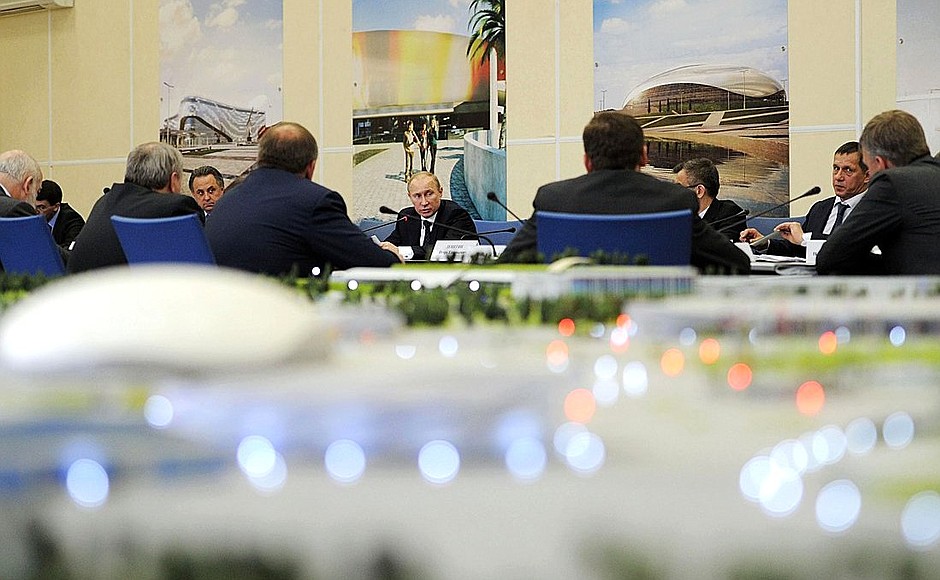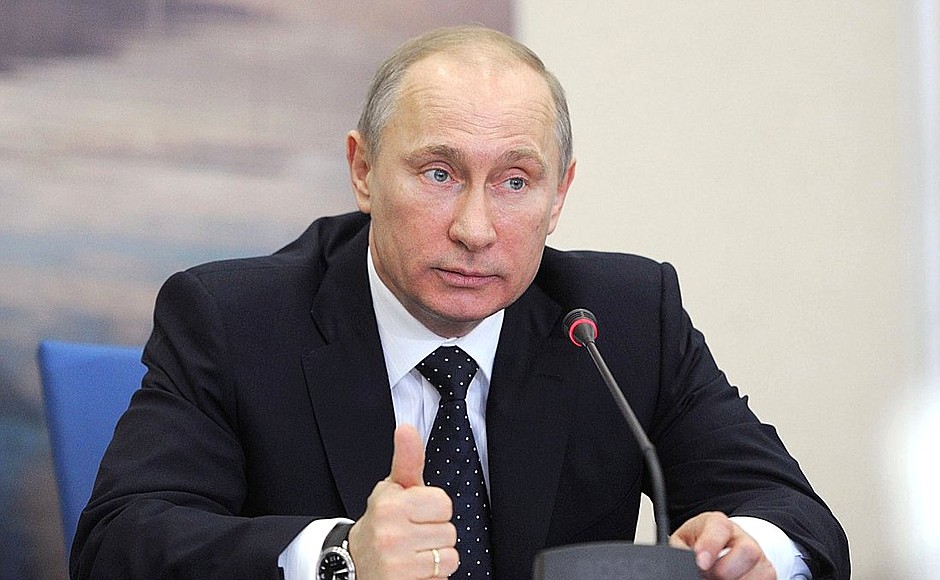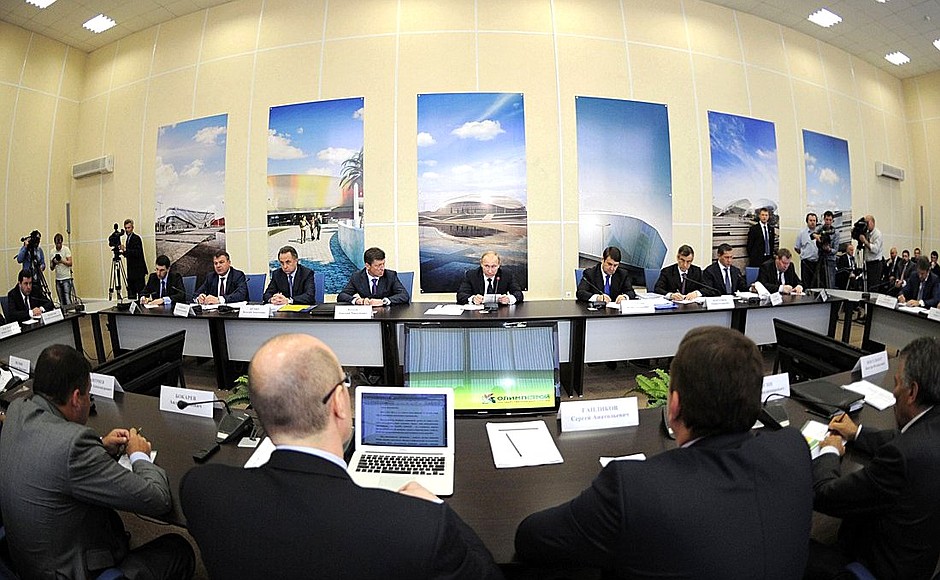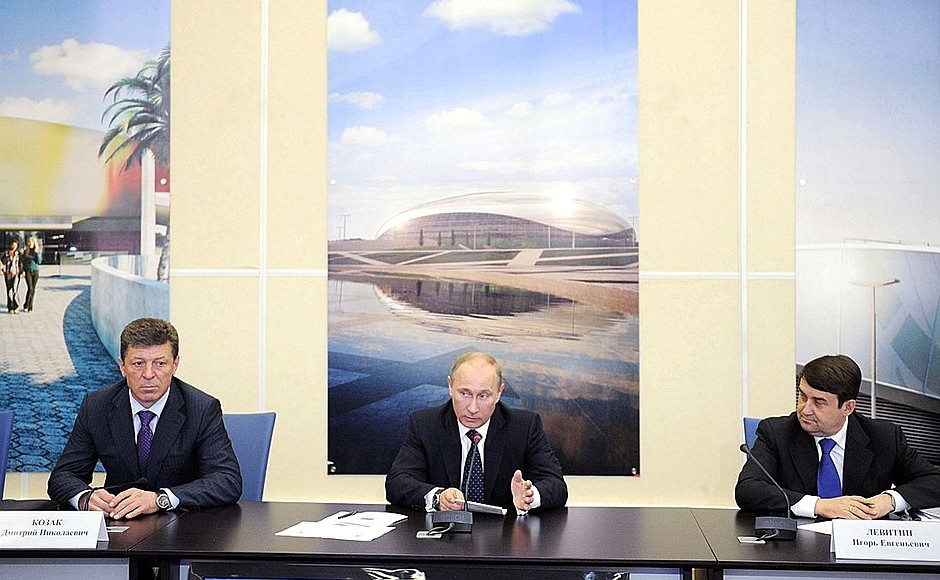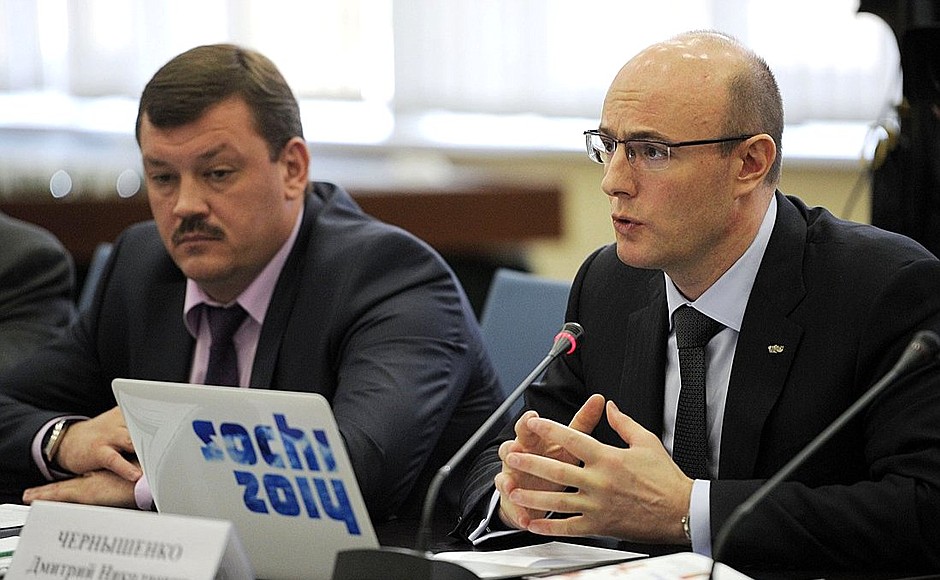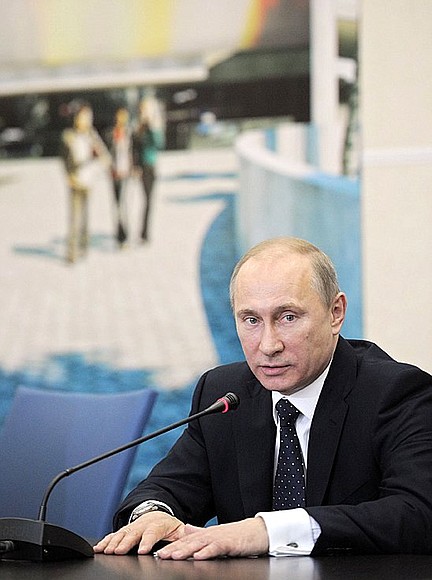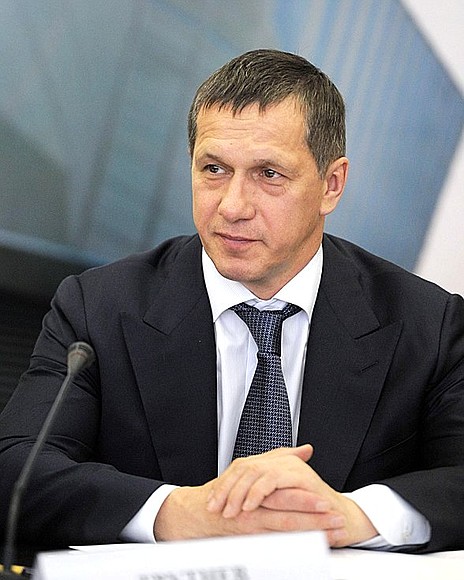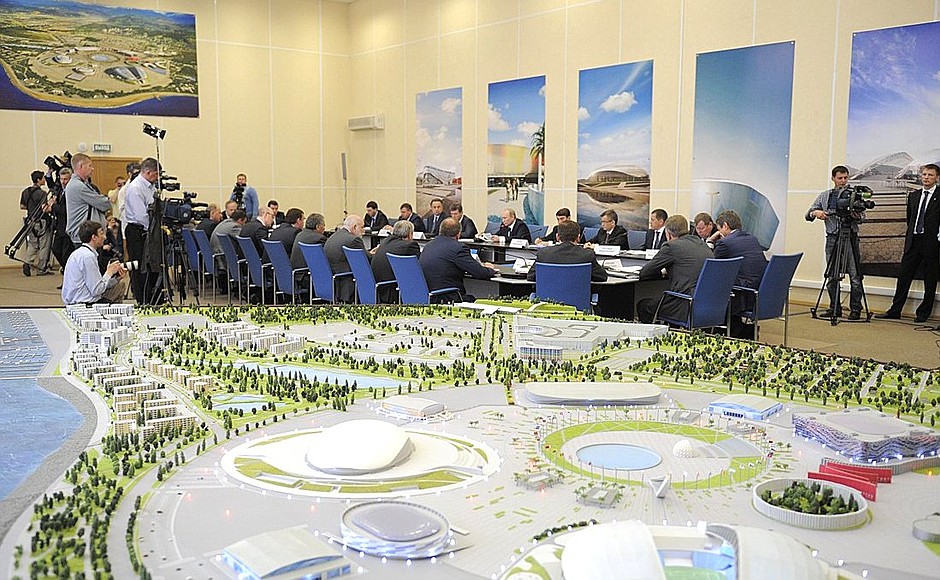* * *
President of Russia Vladimir Putin: Good afternoon, colleagues,
It has been a long time since we met together in this format. Let’s talk today about how work is going on getting ready for the 2014 Sochi Olympics.
Much has been accomplished already, and we are running pretty much to timetable. We can see this from our own monitoring. The Government has the work under its constant control, and Dmitry Kozak is in constant contact with you. Let me remind you that as Deputy Prime Minister in the Government and responsible for overseeing this work, Mr Kozak has the right to express the Government’s point of view. This is something important to remember. We must be agreed on this matter, follow a single line, and not go running to knock on other people’s doors without need. We have a common management centre, and it is there that you should go.
Overall, as I said, our work is proceeding quite smoothly, and the International Olympic Committee is monitoring its progress too. I met just recently, on May 7, with President of the International Olympic Committee Jacques Rogge, and he gave an overall positive assessment of the preparations. But we should always look at our work from a critical angle and identify where we have not done enough, or what we could do better, and cheaper, too, for that matter, though this will be the subject of a separate discussion.
We still have 47 test events planned before the Olympics begin. These test events began last year and have been a success so far. This was the common opinion of the athletes, specialists, coaches, and the spectators too, of which there are quite a few. Overall, the work is going well. Half of the planned 47 test events will be international – quite a big number: 22 international competitions and 25 Russian national competitions.
”Our job is to make sure that all of the facilities are fully ready for the competitions, and meet the International Olympic Committee’s standards. Above all, this concerns the sports facilities.“
Our job is to make sure that all of the facilities are fully ready for the competitions, and meet the International Olympic Committee’s standards. I am referring above all to the sports facilities, including the stadiums that will host ice hockey and figure skating events, downhill skiing and bobsleigh. We need to complete work on the speed skating centre and bobsleigh and skeleton track too.
The facilities and the entire infrastructure needed for organising the events must be completed and ready for use by the end of this year. I said that work is proceeding to timetable overall, but I note that it could be a bit faster in the case of some facilities. Let me remind you that the completion deadlines that were approved clearly set out the obligations and deadlines for investors, those placing the orders, and the subcontractors. All of the different stages of work, the deadlines and procedures were settled and approved, and must be respected without fail. Most of the facilities are technically interlinked, and so even isolated delays in the overall timetable can lead to a chain reaction, and this goes for all of the Olympic sites.
Let me remind you that for the Olympics we must build and reconstruct 532 facilities in total. Some of these sites, as I discussed with Mr Kozak just before, Roza Khutor, for example, are counted as one facility, but the site actually has 40 facilities. If we break the sites down in the actual number of facilities at each site, we end up with 800 facilities or even a little more, including sports and tourism facilities, transport, energy, communications, healthcare facilities and engineering and hotel infrastructure.
To date, we have completed 141 projects and certain stages of 29 more facilities. Work must be completed on another 135 facilities over the course of this year. Failures to comply with the construction deadlines today should be the signal for demanding additional financial guarantees from the subcontractors.
Colleagues and friends, as you have discussed with Mr Kozak – and I fully agree with him on this point – you have taken on these obligations. If you think there are any problems, please sort them out yourselves. We are ready to lend a hand, and you know that we do this, but in return we need guarantees, not verbal assurances, but written guarantees.
”I ask to take exhaustive measures to ensure that all those placing the orders, and the design and construction organisations meet their previously agreed obligations. All measures provided for by law and the contracts, including financial liability, must be used to ensure strict compliance with the works timetable.“
I ask Olympstroy and, where necessary, the state authorities, to take exhaustive measures to ensure that all those placing the orders, and the design and construction organisations meet their previously agreed obligations. All measures provided for by law and the contracts, including financial liability, must be used to ensure strict compliance with the works timetable.
After the journalists leave, I will tell you what failures to meet the deadlines will amount to. I do not want to frighten anyone, but I will speak with you as people I have known for many years now. I want to remind state officials and private company owners that when we began these preparations for the Olympics, I asked you all to weigh up your strength and possibilities and make carefully considered and responsible decisions on taking part in the Olympic project.
I work from the position today that those decisions were taken in all conscious knowledge and that everyone must meet their obligations in time and in accordance with the cost agreements settled earlier. On the matter of costs, I know that some of the contractors and subcontractors want to scale up the costs with the projects now in the final construction phase.
Let me tell you that this is not acceptable. We will deal with each such case separately. If the site’s cost was determined by the investor or subcontractor independently, without coordination with the state authorities, then it is this private organisation that bears responsibility for the risk of increased costs and additional expenses. We will act within the accepted rules and norms of civil law relations.
Equally strict demands on keeping to the work deadlines apply to the work on putting the security infrastructure in place. These facilities require particular attention and the design and construction timetables must be respected in full.
We will go through each of the trouble spots today, and I want to hear from you detailed reports with clear explanations of the whole situation.
I want to come back to the organisation of the test competitions. These competitions are a dress rehearsal for the Olympics themselves, and the chance to put all of the management models through a systemic run. Every single detail here, from the weather forecasts and ensuring reliable mobile telecommunications, to smiles and a friendly attitude towards the specialists and athletes is all important for successfully holding the future Games, and for our country’s reputation.
”Everyone must meet their obligations in time and in accordance with the cost agreements settled earlier. I know that some of the contractors and subcontractors want to scale up the costs with the projects now in the final construction phase. Let me tell you that this is not acceptable.“
I ask you to be very conscientious in organising these competitions and put thorough attention in coordinating all of the different organisations involved in organising and holding the Olympics – the management bodies, the city utilities and road services, the rescue workers, law enforcement agencies, medical workers, and volunteers.
We need to make an accessible environment for people with disabilities and ensure a good level of service for the athletes and the spectators. I draw your attention to the need to implement the ticketing programme in full too during the test competitions. It is important to work out and test all of the procedures for managing the crowd flows and the logistics during the Games, so as to ensure maximum comfort for everyone.
I ask you to tell me in detail about the preparations for the test competitions today.
As we have said before, these Olympics must above all give a boost to Sochi’s development as one of Russia’s biggest tourism and resort centres. This is another issue that I want to draw to your attention.
I note in this respect that more than 80 percent of the resources we have invested in the Olympics are going on developing and modernising Sochi’s housing and utilities infrastructure: the water supply and sewerage systems, building roads, tunnels, and transport links. We are reconstructing existing hotels, health resorts and holiday homes and building new ones in all different price categories.
Incidentally, I discussed with the Governor [Alexander Tkachev] today the fact that we have many housing programmes for particular groups of the population, programmes for military servicemen and for a large number of other people, and we could make use of the housing stock built for the Olympics for resolving these tasks too. We only need to make sure that the prices are reasonable and not inflated.
Even now, despite all of the construction work and the inevitable inconveniences it causes, the number of tourists visiting Sochi is growing. Last year, nearly 4 million people (3.9 million) visited the city. Sochi’s tourism industry contribution to Krasnodar Territory’s consolidated budget is also increasing (almost by a billion rubles) and, according to the current data, was up from 2.6 billion rubles in 2008 to 3.6 billion in 2011.
Let’s talk today about what is changing in Sochi and about how Sochi, as an active resort centre, is preparing for the summer holiday season, despite the Olympic construction work.
